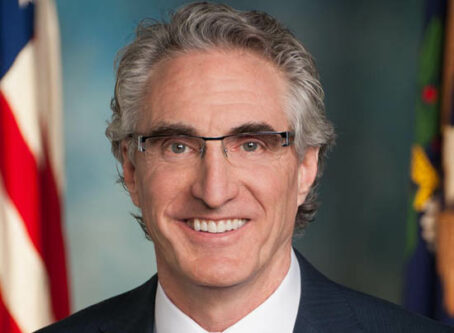Connecticut governor orders toll study; GOP lawmakers against it
Connecticut Gov. Dannel Malloy recently signed an executive order directing state agencies to conduct a toll study to raise revenue for infrastructure. With three toll studies already conducted since 2015, some state lawmakers, including a candidate for lieutenant governor, say further study is unnecessary.
On Tuesday, July 17, Gov. Malloy signed an executive order that requests $10 million in bond money for a toll study examining whether “drivers from out of state contribute their fair share to the operation and maintenance of the state’s highways while also possibly reducing taxes on the sale of gasoline.”
Malloy said in a news release that the Special Transportation Fund has been destabilized as vehicles become more fuel efficient. Malloy cites at least 26 states since 2013 that have increased their fuel taxes. Connecticut reduced its fuel tax in 1997 from 39 cents per gallon to 25 cents, where it has remained since.
The order directs the Connecticut Department of Transportation to assess possible tolling on Interstates 95, 91, 84; the Wilbur Cross Parkway; the Merritt Parkway; and other limited-access highways. Malloy also wants the DOT to explore plans that could reduce fuel taxes.
“During this past legislative session, we heard time and again from legislators that they wished for more information regarding electronic tolling, including specific recommendations with respect to its possible implementation,” Malloy said in a statement.
Not all legislators asked for this.
Sen. Joe Markley, R-Southington, pointed out to Land Line that the state has already conducted three toll studies since 2015. In 2015, a 47-page white paper titled “A Conceptual Look at Tolling Highways in Connecticut” was released. In 2016, two detailed reports totaling nearly 900 pages assessed tolling on the I-95 corridor and I-84 corridor. According to local media reports at the time, the state has already spent more than $3.28 million on studying congestion tolling on I-95 and I-84 alone.
“One of the ways they sell (tolls) here in Connecticut is to say ‘All of these out-of-staters are coming through and not paying anything’ and they also say ‘All those interstate truckers are coming through and not paying anything,’ which I know is not true,” Markley said. “I think interstate truckers are giving us over $40 million a year.”
The white paper also reveals that out-of-state motorists would account for a small amount of total revenue. According to the report, about 25-30 percent of revenue from statewide tolling would come from out-of-state motorists. That rate increases to 50-55 percent when tolling only near the borders. However, the federal government is not likely to approve of border-only tolling.
“I am dead set against the tolls, and I am triple dead set against this ridiculous expenditure on a study that is unnecessary by a governor who is on his way out of office, when there’s an excellent chance we’re going to elect somebody who is going to have no interest in putting tolls on the highway at all,” Markley said.
Markley, who is running for lieutenant governor in the upcoming election, wants to use existing taxes for infrastructure. According to the senator, tax revenue that is marked for infrastructure is going elsewhere.
The state Bond Commission will decide during its July 25 meeting whether to approve of the $10 million allocation to fund the study.









